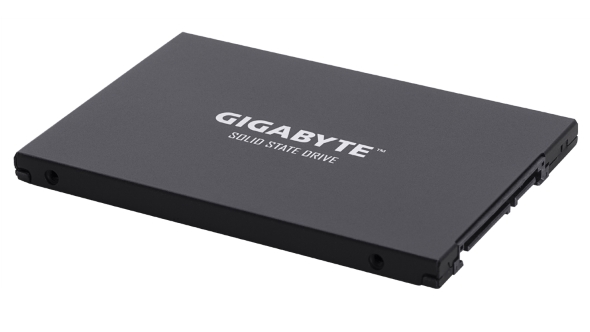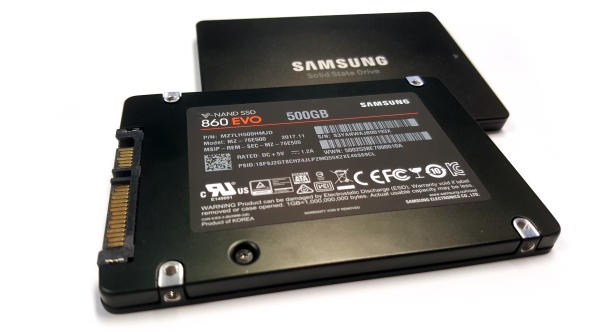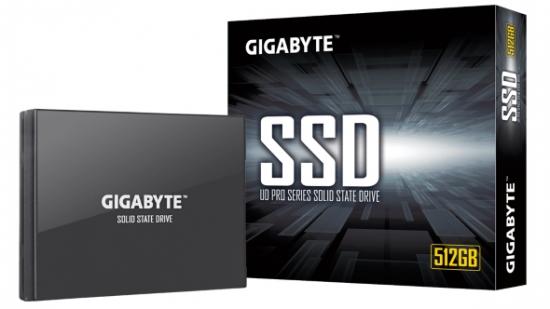Gigabyte are getting in on the old SSD game with their new SATA-based UD Pro drives, which seems… odd. It’s quite late in the day for a company to start trying to get into the SSD market in any real way, and by focusing just on a pair of basic SATA drives it seems tentative to say the least.
Need some serious storage? These are the best SSDs for gaming around today.
The new Gigabyte UD Pro SSDs are built using Toshiba’s 3D TLC NAND flash memory and uses a Phison memory controller to shunt data around as quickly as the technology allows. Which is obviously up to the limits of the hoary ol’ SATA interface.
There are hard limits on the speed of the 6Gbps interface, so the rated sequential read/write speeds of 530MB/s and 500MB/s are both pretty standard and almost at the top speed the SATA connection can offer. In a way, that makes Gigabyte’s decision to start off with SATA drives a smart one – they don’t have to have the best technology around to deliver competitive performance.

If they’d chosen to go for a high-end NVMe drive they’d be going head-to-head with both Intel and Samsung. And the Korean maestros have just launched their mighty Samsung 970 EVO drives, and they would be tough to beat without manufacturing at least one of either their own memory or memory controller.
So, SATA makes sense. But one thing they have to do – and something about which they haven’t yet announced – is to price them ultra competitively if they want to make any mark in the industry.
Back around the big bang of the SSD market everyone was grabbing off the shelf controllers and memory and making their ‘own’ solid state drives. They’d pick a SandForce or Marvell controller, some Intel or Toshiba memory, and stick a fancy name and sticker on the drive. But that stopped being a viable approach when Samsung started getting serious about the industry, making their own high-performance controllers and subsidising the SSD division with their own pacey NAND flash.

As it stands only Crucial/Micron, and to a less extent, Intel, are able to offer them any sort of competition as the me-too SSD makers have now fallen by the wayside.
Which does make it an odd move, at an odd time, for Gigabyte to try and diversify off into the SSD space. Will they make a mark? It’s probably unlikely, because in the SATA SSD space it’s all about price and reliability, and it’s going to be difficult for Gigabyte to be able to price their UD Pro drives at the same sort of level as Samsung’s 860 EVO or Crucial’s MX500 SSDs.
And in terms of reliability? Well, the 200TB endurance of the UD Pro is slightly higher than the MX500, at 180TB, but their three warranty is off the current five year standard of the big boys. And Samsung’s 860 EVO drives are also promising another 100TB in terms of endurance over the Gigabyte upstarts.
It’s going to be a tough, almost impossible, market for them to crack, but good luck to them… especially if they do make them genuinely competitive.
